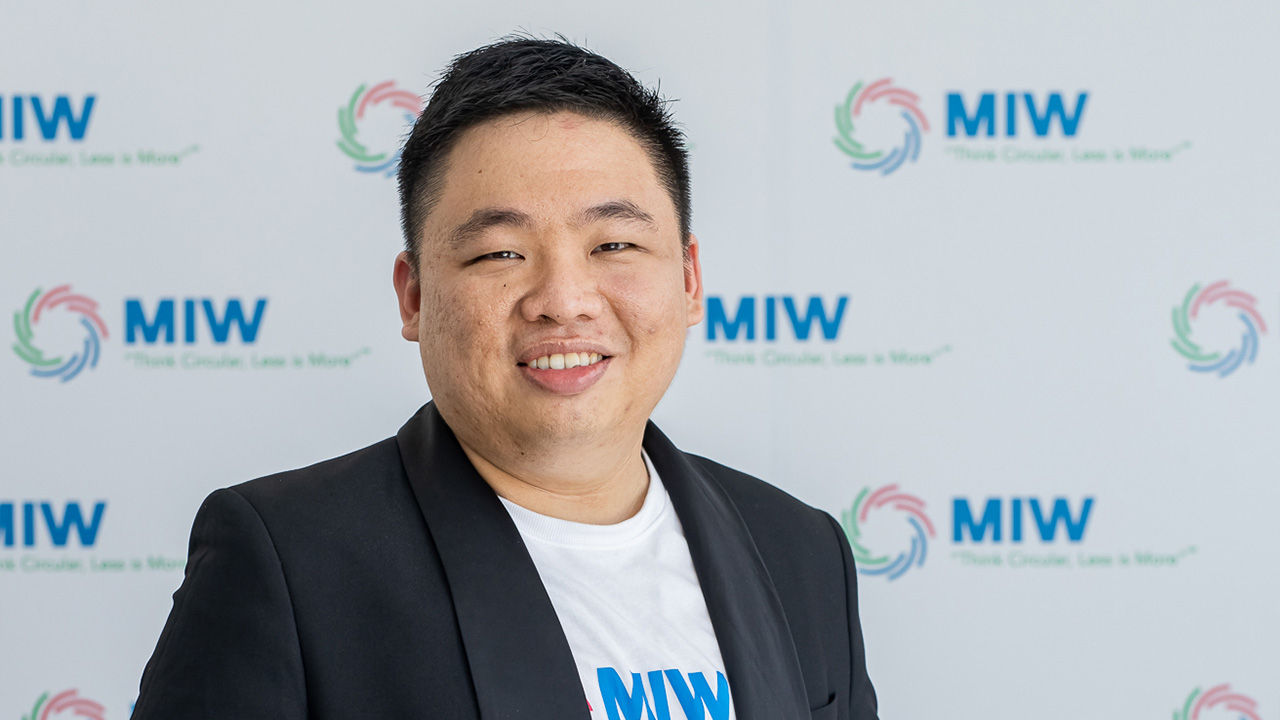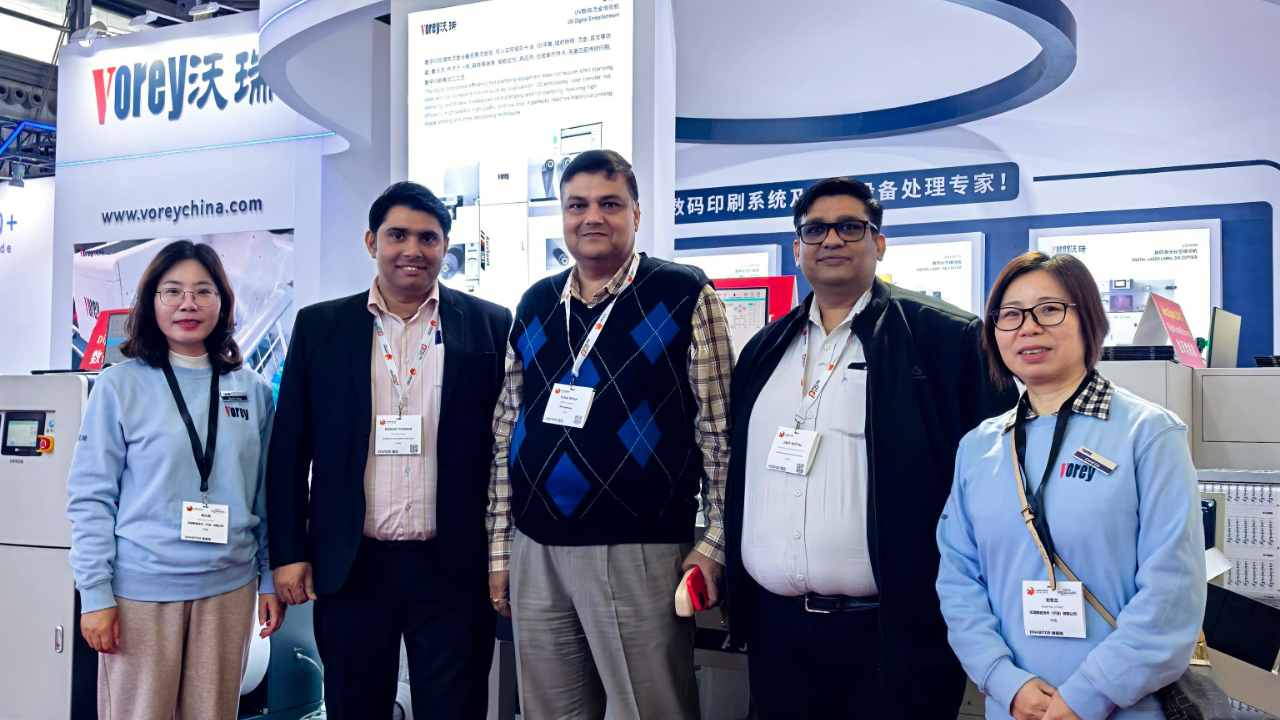Upcycling the future
As industries grapple with the growing challenge of packaging waste, Materials In Works is pioneering an innovative approach by transforming hard-to-recycle label and packaging materials into valuable resources.

In an industry criticized for contributing to environmental waste, Materials In Works, a Malaysia-based company, is tackling one of the biggest sustainability challenges head-on. John Ooi, founder and technical director, is leading a movement toward a circular economy by upcycling hard-to-recycle label and packaging waste into valuable materials.
John Ooi’s passion for sustainability and technical innovation stems from nearly a decade of experience in the industry. Observing the increasing impact of industrial waste, he recognized a critical need for scalable, eco-friendly alternatives to landfill disposal.
‘I’ve always believed that with the right innovations, we can turn waste into a resource,’ Ooi explains. ‘This belief drives my team’s dedication to developing technologies that reduce environmental harm and offer value to businesses.’
From concept to reality
Materials In Works was born out of a pressing issue in the label packaging sector: liner waste. Traditionally sent to landfills due to its specialized coatings, liner waste contributes significantly to carbon emissions and environmental degradation. Ooi saw an opportunity to change this narrative.
‘Our main product is upcycled paper liner waste, processed from laminates and matrix waste,’ he says. ‘Through partnerships, we’ve developed a specialized process that converts these materials into resources for the cement industry, helping to reduce landfill dependency.’
I’ve always believed that with the right innovations, we can turn waste into a resource
The company began with small-scale trials in collaboration with universities, leading to a proof of concept that attracted multinational support and government funding.
A key driver of Materials In Works’ success has been its collaboration with University Science Malaysia (USM), a leader in paper and pulp research.
‘We’ve worked closely with Dr Leh [Cheu Peng] and her team to conduct extensive material testing and benchmarking studies,’ Ooi shares. ‘One of our biggest breakthroughs came from comparing our Recovered Cellulose Pulp [RCP] with virgin pulp supplied by a leading tissue manufacturer. This validation helped us ensure our material met industry standards.’
Addressing Malaysia’s growing waste problem
With landfill space in Malaysia rapidly diminishing, Ooi warns of the urgent need for sustainable waste management options.
‘The scale of the problem is staggering. Just paper liner waste alone could fill Malaysia’s iconic Petronas Twin Towers in just 45 days,’ he reveals. ‘Beyond liner waste, laminate and matrix waste also contribute tons of material to landfills every year. We see these as valuable resources that can be repurposed.’
Materials In Works offers two primary upcycled products that directly address label and packaging waste.
The first is Recovered Cellulose Pulp (RCP): By removing the silicone coating from paper liner waste, the company transforms it into high-quality pulp suitable for the tissue industry. Looking ahead, zit aims to develop molded pulp products as a sustainable alternative to single-use plastics.
The second product is Process Engineered Fuel (PEF): Laminate and matrix waste, often containing adhesives and printed artwork, presents recycling challenges. Through a specialized process, this waste is converted into PEF, an alternative to coal used in cement production.
‘This end-to-end upcycling model is the first-of-its-kind in Malaysia,’ says Ooi. ‘And we’re confident it can be scaled globally.’
Building strategic partnerships
Materials In Works has already secured major partnerships with industry leaders. These include Uniqlo Malaysia, which produces significant label waste from RFID tags, price tags and shipping labels. Wipro Unza is another brand owner in Malaysia’s personal care and home products sector, generating high volumes of sticker waste. Both work with Materials In Works to lower their carbon emissions and responsibly upcycle labeling waste.
Well-established material suppliers such as Avery Dennison and UPM Raflatac are both engaged in discussions to formalize waste management initiatives in Malaysia in partnership with Materials In Works.
Label converters are also using the company. Mega Labels and Fastroll Labels are local converters that have helped divert at least 18 tons of label waste from landfills in just one year.
Materials In Works has filed patents for its proprietary processes and is eying growth into Vietnam and Indonesia, where landfill waste remains a significant issue.
‘Our goal is to work with global brands and governments to create a true circular economy,’ Ooi states. ‘We have the technology to make a real impact.’
Overcoming industry challenges
Ooi acknowledges that shifting industry norms presents challenges, particularly for label converters used to traditional waste disposal.
‘For example, Mega Labels initially had concerns about logistics and waste handling,’ he says. ‘We proposed an innovative solution utilizing their trucks, which were returning empty after deliveries, to transport waste back for upcycling. It turned out to be a win-win, aligning with ESG goals while remaining cost-efficient.’
Materials In Works proves that packaging waste doesn’t have to end up in landfills; it can be transformed into valuable resources. With innovative technology, strong partnerships and a clear vision for the future, Ooi and his team are paving the way for a more sustainable packaging industry, one upcycled product at a time.
Stay up to date
Subscribe to the free Label News newsletter and receive the latest content every week. We'll never share your email address.


